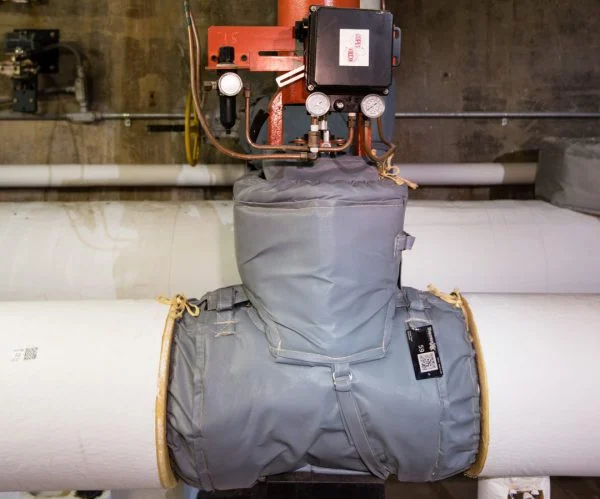
Insulation blankets are removable insulation that can be installed around piping, instrumentation and valves. Generally, they have three or more layers: a hot side material that faces the pipe, engine, or source of heat, a high temperature insulation layer that is consists usually of ceramic or fiberglass, and a cold side designed to resist external elements like moisture or chemicals.
What are the Benefits?
Benefits from using insulation blankets include conservation of energy, improved operational efficiency, protection for workers from hot surfaces, and reduced noise pollution in the facility. At the same time, they are used to conserve energy and improve operational efficiency. They achieve this by covering up various exposure points that heat slips out of. More precisely, by covering up these exposure points heat loss will be prevented resulting in a lower energy bill. The greatest benefit is ease of access. Continually removing and adding traditional insulation around pipes, tanks, and instrumentation is not easy and is costly. By utilizing these blankets installation and removal can be as easy as tightening and untightening straps.
What Industries Do They Serve?
Any industry can benefit from insulation blankets, but most commonly insulation blankets are found in oil and gas, power generation, agriculture, marine, aerospace, and the water and wastewater industry. Insulation blankets are common in these areas because they can be field fit to each application’s specific dimensions.
